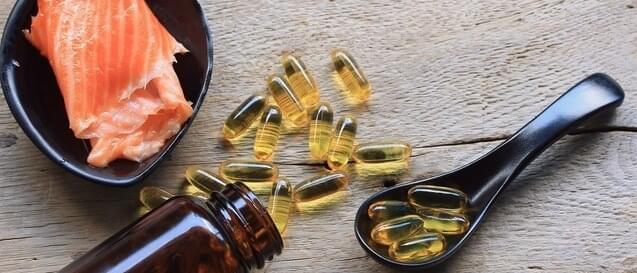Enjoy FREE Shipping on Orders Over $99
DON’T HAVE A COUPON CODE?
Use EZ10OFF At Checkout to Save 10% On Your Entire Order Today!
Pregnant Moms: Eat This 1 FAT to Protect Your Baby's Brain and Vision

Omega-3 fatty acids aren’t just essential for YOUR long-term brain health, vision, and overall physical health. If you are a pregnant, Omega-3s are especially important for the normal development of your unborn child.
As the name of a family of polyunsaturated fats, Omega-3s fall into three main groups:



As an essential part of cells throughout your body, Omega-3s regulate genetic function. They help produce hormones that regulate blood clotting and the contraction and relaxation of artery walls. Research also shows that Omega-3s reduce inflammation and may help lower your risk of heart disease, high cholesterol, high blood pressure, certain cancers, arthritis, osteoporosis, diabetes and cognitive decline.
Signs of Omega-3 deficiency include:
DHA makes up approximately 97% of all Omega-3 fatty acids found in the brain and 93% of Omega-3s found in the eyes, which makes DHA critical during pregnancy and breastfeeding. (Breast milk contains significant amounts of DHA.) Studies show that babies who do not get enough Omega-3 fatty acids from their mothers (passed through the placenta) during pregnancy are at risk of developing vision and cognitive problems. Research also shows that Omega-3 deficiency in pregnant women can increase the risk of preeclampsia, low birth-weight babies, premature birth and hyperactivity in children.
The key to putting Omega-3s to work for you (and your unborn child, if you’re pregnant) comes down to diet. While your body can make most types of fats from other fats or raw materials, your body can’t make Omega-3s from scratch. That’s why they’re called essential fats. You must get them from food, but most Western diets are 14 to 25 times higher in Omega-6 fatty acids.
Found in fast foods, cookies, cereals, salad dressings and most vegetable oils, Omega-6s are also beneficial to human health when they’re in balance with Omega-3s. But when Omega-6s exceed Omega-3s, they promote inflammation and work against the health benefits of Omega-3s. Research shows that too many Omega-6s can raise your blood pressure and increase your risk of heart attack and stroke by raising your risk of blood clots.

The Mediterranean diet, on the other hand, has a healthier balance between Omega-3 and Omega-6 fatty acids. Emphasizing foods that are rich in Omega-3s, including whole grains, fresh fruits and vegetables, fish, olive oil, garlic and moderate wine consumption, the Mediterranean diet has been shown to reduce the risk of premature death caused by heart disease and stroke. In studies published by Harvard Medical School, women in their 50s and 60s who followed the Mediterranean diet were 40% more likely to live past the age of 70 without chronic illness and mental health issues than women who followed less-healthy diets.
If a complete change of diet is too much for you all at once, you can easily get the Omega-3s you need in supplement form. Both EPA and DHA can be taken in the form of fish oil capsules or flaxseed oil, and make sure to keep them refrigerated.
When looking for a supplement, make sure you buy from an established company that certifies their products free of heavy metals like mercury, lead and cadmium. Also, look for an EPA to DHA ratio between 2:1 and 3:2.
Wishing you good health through wise nutrition,